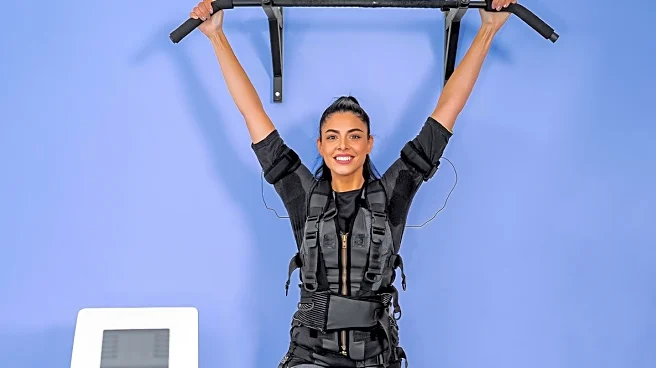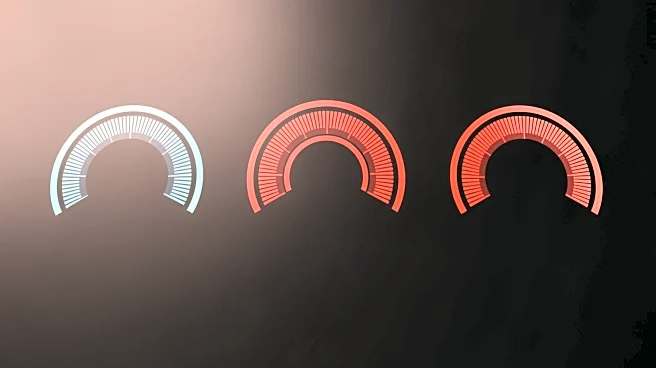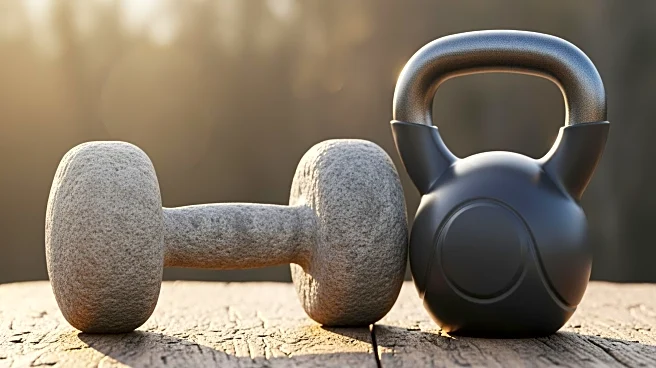What's Happening?
Recent research has highlighted the potential benefits of weighted vests in aiding weight loss and maintaining it over time. Traditionally used by military personnel and elite athletes, weighted vests are now being integrated into everyday fitness routines. A study involving eighteen obese adults aged between their late 60s and early 70s examined the effects of weighted vests over a six-month weight-loss program. Participants were divided into two groups: one group followed a caloric restriction diet, while the other combined the diet with wearing a weighted vest for 10 hours daily. Both groups initially lost similar amounts of weight, but after two years, the vest group regained only half of the lost weight, maintaining a lower body weight compared to their baseline. The study also noted differences in resting metabolic rate (RMR) changes between the groups, with the vest group experiencing a smaller decrease in RMR compared to the diet-only group.
Why It's Important?
The findings suggest that weighted vests could be a valuable tool in long-term weight management, particularly for older adults who often struggle with maintaining weight loss. The ability to sustain a higher metabolic rate while losing weight is crucial, as it can prevent the common metabolic slowdown associated with dieting. This research could influence fitness and health industries by promoting weighted vests as a practical solution for weight maintenance. It also highlights the importance of exploring alternative weight loss methods that can complement traditional dietary approaches, potentially benefiting those who have difficulty adhering to strict diets.
What's Next?
Further research is needed to fully understand the mechanisms behind the effectiveness of weighted vests in weight management. Studies could explore the psychological and physiological impacts of wearing weighted vests, as well as their long-term effects on physical activity levels and overall health. Fitness and health professionals may begin to incorporate weighted vests into weight loss programs, and manufacturers might innovate new designs to enhance comfort and usability. Public health campaigns could also consider promoting weighted vests as part of a holistic approach to weight management.
Beyond the Headlines
The use of weighted vests raises questions about the balance between physical activity and dietary interventions in weight management. It challenges the traditional focus on caloric restriction alone, suggesting that physical adaptations can play a significant role in maintaining weight loss. This approach may also encourage a shift in how society views weight loss, emphasizing sustainable practices over quick fixes. Additionally, the study's implications for older adults highlight the need for age-specific weight management strategies that consider metabolic changes and lifestyle factors.









